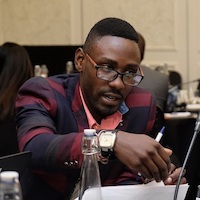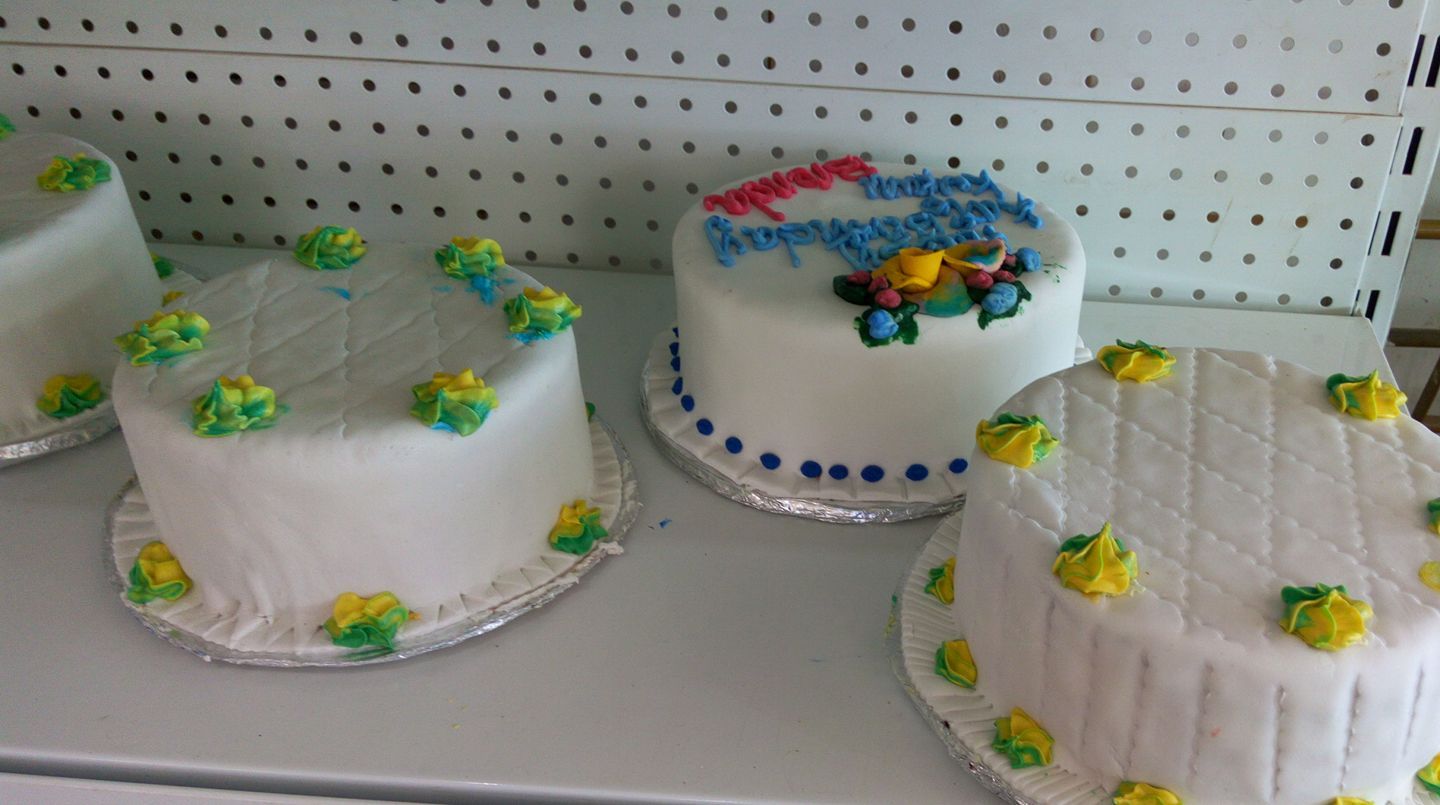In honor of Pride Month, an LGBTQ leader in Uganda—one of the most dangerous places in the world for people identifying as LGBTQ—tells us about his unique theory of social change: economic development through cake baking.

A: People who identify as LGBTQ in Uganda face high levels of discrimination and inequality. When I carried out a baseline survey prior to founding Mbarara Rise Foundation, I learned that more than 95% of people identifying as LGBTQ were unemployed and very much economically disenfranchised. The need for food and paying rent and bills overshadowed the concern for safer sex. This made people more desperate for money despite dangers of exposure. In response to above findings, I was inspired to start MRF as a way of bring hope and social change.
A: The Uganda Anti-Homosexuality Act of 2014 (previously called the “Kill the Gays Bill”) was passed by the parliament of Uganda in December 2013 and signed into law by the president of Uganda in February 2014.
Before the Act, LGBTQ people could be sentenced to life in prison, but the Act declared homosexuality punishable by death. Even though the Constitutional Court of Uganda ruled the Act invalid on procedural grounds in August 2014, many people still think the law is valid and use it to discriminate against the LGBTQ community.
In a course of six months, we have documented more 89 cases of which 63 are based on human rights violations, arrests, attacks and rape of transgender people, high levels of Unemployment, and denial of HIV health care services which has increased new HIV infections.
A: I love working in a position that has a deep impact upon the LGBTQ community, as well as in the life of an individual. The most exciting part of my work is the challenge of the hunt; I spend all day talking to people to help them find the roles and environments where they can thrive and do the best work.
My main motivation comes from providing excellent service to every LGBTQ person with whom I come into contact. I look for opportunities to improve my community and equip them with skills so that each person I interact with will have a positive experience.

A: Before the cake baking kicked on, I carried out a design thinking challenge where I focused on implementing a project that will make a big impact, educate people, reduce high levels of unemployment among the LGBTQ community, be sustainable, contribute to the economic development of the country, and at the same time build acceptance leading to social change.
I choose cake baking because it offers a variety of areas in which to specialize. Bakers are responsible for making breads, bagels, pretzels, cakes, muffins, cookies, and pastries, as well as chocolate and candy, sugar sculptures, and icing. They can prepare many different baked goods or specialize in just one depending on their experience and training. I saw this as an opportunity. When trained with baking skills, they will be able to work in different places like small retail bakeries, their own bakeries, restaurants, supermarkets, catering services, wholesale bakeries, and more. They can also train others with the same skills. Equipping someone with lifetime skills means there is sustainability hence contributing to economic development.
A: Their great support and effort is valued and can bring social change, inclusion, and respect for the diverse culture of our community. Their support also builds acceptance and tolerance. Ultimately, economic development and social inclusion work toward the Sustainable Development Goals which will enhance the lives and well-being of LGBTQ persons in Uganda.
June is Pride Month, when gay, lesbian, bisexual, transgender, and queer people around the world celebrate who they are. In honor of Pride Month, support Mbarara Rise Foundation’s work in Uganda.
Featured Photo: Cake Baking for LGBTQ Empowerment in Uganda by Mbarara Rise FoundationFind exactly what you're looking for in our Learn Library by searching for specific words or phrases related to the content you need.